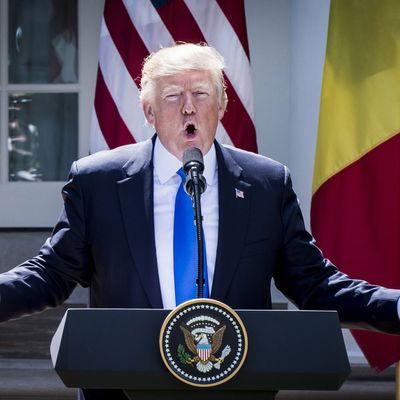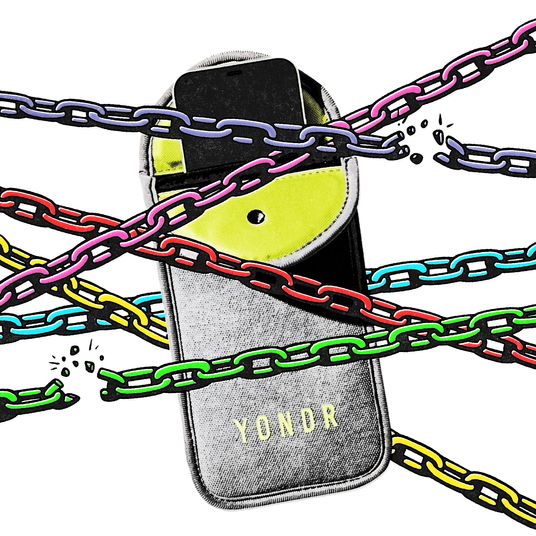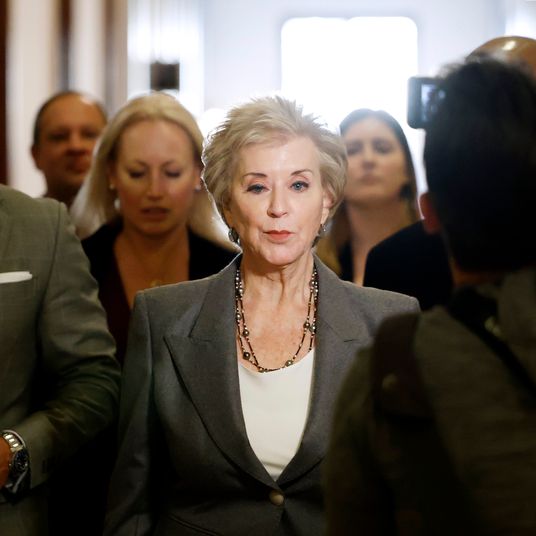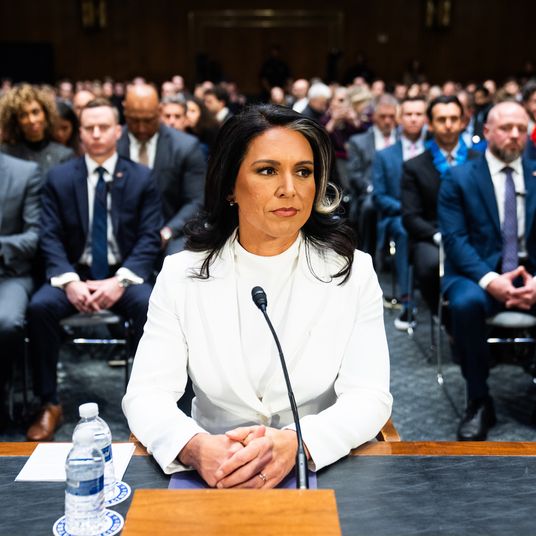
Russian agents hacked the Democratic National Committee’s email account in a bid to disrupt the 2016 election. This claim has been affirmed by every branch of the American national security state, virtually every member of Congress from either party, and, on occasion, the Trump White House. Even Vladimir Putin doesn’t flatly deny that such a hack occurred — rather, he merely insists that, if it did, the attack was conducted by Russian “patriots” acting independently of the Kremlin.
And yet, Donald Trump is unwilling to concede this point. On Thursday, the president offered the following airtight case for believing that the Democratic Party hacked its own emails, as part of a nefarious plot to tarnish the glory of Trump’s inevitable victory … or something.
One can certainly argue that the Obama administration’s efforts to deter Russia were insufficient, and/or that the DNC’s cybersecurity protocols were lackluster. But the connection between such premises and the conclusion that so-called Russian interference is one big Democratic “scam” is hard to parse.
Ostensibly, Trump is arguing that the Democratic National Committee — and, later, Clinton campaign chairman John Podesta — deliberately allowed their politically damaging emails to be hacked and published, so that they would have a ready-made excuse for losing the election. Thanks to their friends in the “deep state,” this worked. And now, the FBI, CIA, NSA, Pentagon, top White House national security officials, and entire Republican Party are carrying water for this Democratic hoax.
Which is a long way of saying: The president is arguing that Democrats are losers, he is a winner, and his supporters should substitute their faith in those two premises for rational thought when contemplating the subject of Russian interference.
It is impossible to explain why the president would wish to contest the existence of Russian interference without stipulating that he is beholden to the Kremlin or out of his mind (or both).
If Trump is not in kahoots with the Russian state, then he has every incentive to accept the consensus view that Putin’s regime interfered in the 2016 election. What better way to demonstrate the absurdity of the collusion accusations than by vigorously condemning Moscow’s exploits? What worse way to dispel suspicions that one is a Siberian candidate than to publicly take Putin’s word over that of American intelligence agencies?
But this isn’t the first time Trump has displayed a bizarre fealty to the Kremlin’s line. To name just a few others:
(1) His campaign took a hands-off approach to the GOP’s 2016 platform — except on the issue of American aid to Ukraine in its efforts to combat Russian intervention. On that score, Trump’s team insisted on striking language about providing “lethal weapons” to the Ukranians.
(2) His administration looked into lifting sanctions on Russia for “absolutely nothing” within days of taking office.
(3) The White House has shown little interest in bucking GOP orthodoxy for the sake of upholding Trump’s more idiosyncratic campaign stances — except on the issue of foreign policy toward Russia. At present, the administration is working to kill bipartisan legislation locking in sanctions against Moscow.
One can argue against reading too much into any of these individual actions — on the last count, the Trump administration is essentially fighting an attempt to roll back executive power, which is a pretty ordinary thing for a White House to do. But taken together, and viewed in the context of Trump’s various attempts to stymie the Russia probe, the actions paint an alarming picture.
Still, it’s possible to find an alternative explanation for Trump’s Thursday tweetstorm. Sure, there’s no rational reason for a non–Putin puppet to dispute the consensus on Russian interference. But the mogul has never allowed himself to be hemmed in by the dictates of rationality.
Trump has consistently refused to acknowledge any reality that diminishes the grandeur of his election — even when doing so requires him to assert the logically unsustainable. The president has argued that he actually won the popular vote, if you subtract the 3 to 5 million undocumented immigrants who voted illegally — while blasting attempts to investigate the legitimacy of November’s vote totals as a “scam.” He has insisted that he won the Electoral College in a “massive landslide,” when his margin was, in fact, far below average. And he has claimed that this feat is all the more impressive, given that Democrats have a structural advantage in the Electoral College — a claim that November’s results would blatantly contradict.
So, it seems entirely possible that Trump isn’t disputing the reality of Russian interference so as to satisfy the Kremlin, but rather, the demands of his own insatiable ego.
Which is to say: The president isn’t necessarily beholden to a hostile foreign power — he could just be a conspiracy theorist with a severe personality disorder.
One might think that both parties could agree that this explanation would render Trump unfit for high office. But then, the GOP has always known that the birther-king fits said description — and abetted the mogul’s rise to power, anyway.
Which is, arguably, still the single biggest scandal in American politics.






























